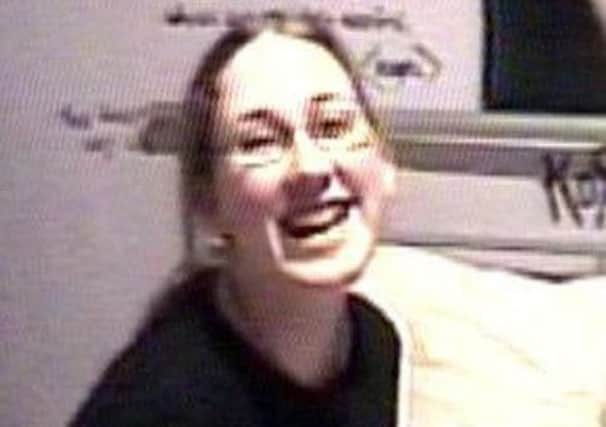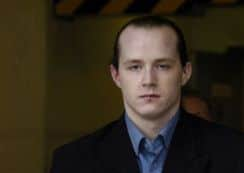Jodi Jones murder: DNA test will provide ‘answers’


Sandra Lean, who has worked alongside the Mitchell family to press for a review of his case, told The Scotsman that the Scottish Criminal Cases Review Commission (SCCRC) have requested new forensic tests over one of Scotland’s most notorious murders.
She said that while Mitchell’s relatives were “delighted” at the development, they remained “frustrated and upset” that such scrutiny of DNA evidence was not carried out a decade ago when Jodi was killed.
Advertisement
Hide AdAdvertisement
Hide AdMitchell was sentenced to at least 20 years in prison for the murder of the fourth-year pupil at St David’s High in Dalkeith. The 14-year-old was reported missing on 30 June 2003 by her mother after failing to turn up at her home. Her mutilated body was later discovered in woodland near her home.


Mitchell, who was also aged 14 at the time of the murder, was found guilty in January 2005. Lord Nimmo Smith told him: “It lies beyond any skill of mine to look into the black depths of your mind.”
Mitchell, now 25, has always protested his innocence over Jodi’s death, but his original appeal against the conviction was rejected in 2008 by the Court of Criminal Appeal after Lord Justice General Lord Hamilton, sitting alongside Lords Osborne and Kingarth, ruled they were satisfied there was “sufficient evidence in law” for a guilty verdict.
Three years later, meanwhile, an attempt by Mitchell to take his appeal the Supreme Court was also rejected.
However, Dr Lean said yesterday that the SCCRC had been re-examining the case since last July, and had informed her that forensic tests were to be carried out, although the scale of any such testing – or a timescale for their completion – remained unclear.
She said that DNA has established no connection between Mitchell and Jodi, explaining: “The argument is quite simple in the scheme of things. There’s all this DNA – male DNA – on the victim’s body and clothing that’s never been identified, but none [of it] has ever been attributed to Luke. That immediately opens reasonable doubt in anybody’s mind. There was nothing to link Luke to Jodi or Jodi to Luke, which was surprising.
“I would like to think that if what we are being led to believe about the sensitivity of DNA testing is correct, then these new tests will identify the originator or originators of at least some of that DNA. We do have one other male DNA profile definitely identified from the victim’s clothing that, at the time, was given an innocent explanation.
“I don’t if the DNA testing will allow that innocent explanation to stand, that’s purely speculative, and I can’t say one way or the other, but certainly there are a number of samples labelled semen and sperm heads – you would think that should be the sort of DNA sample it is fairly easy to get a profile from if what we’re told about DNA testing is to be believed.”
Advertisement
Hide AdAdvertisement
Hide AdAsked how Mitchell and his mother, Corinne, felt about the prospect of the new tests, she added: “They are delighted it’s now being done, but they are so angry and frustrated that it’s taken so long. It’s ten wasted years, this could have been done a decade ago. I know there have been advances in DNA technology, but even the technology available ten years ago almost certainly could have gone further than it did.
“They are obviously frustrated and upset, because if this had been done ten years ago, they almost certainly would not be sitting in the position they are now.”
The SCCRC, a public body funded by the Scottish Government’s justice directorate, could not be contacted yesterday.
It is understood that any request made by the SCCRC in relation to access to evidence would be considered by the Crown Office.